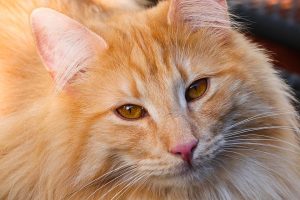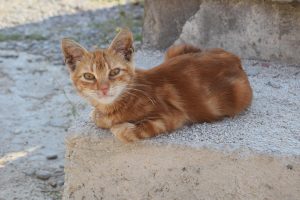
Choosing the right cat breed is a crucial decision that can significantly impact your lifestyle and the well-being of your future feline companion. Whether you’re a seasoned cat owner or a first-time adopter, understanding the characteristics, needs, and temperaments of different cat breeds is essential to making an informed decision. This guide provides practical insights into selecting and caring for the ideal cat breed that aligns with your lifestyle, ensuring a harmonious and fulfilling relationship with your furry friend.
Understanding Your Lifestyle
The first step in choosing the right cat breed is to assess your lifestyle. Different cat breeds have varying energy levels, grooming needs, and social behaviors. Consider the following factors:
- Time Commitment: How much time can you dedicate to your cat daily? Some breeds require more attention and interaction than others.
- Space Availability: Do you live in a small apartment or a spacious home? Certain breeds adapt better to smaller living spaces.
- Allergies: Are you or any family members allergic to cats? Hypoallergenic breeds may be a suitable option.
- Activity Level: Do you prefer a playful and active cat or a calm and laid-back one?
- Other Pets: Do you have other animals at home? Consider breeds known for their compatibility with other pets.
Popular Cat Breeds and Their Characteristics
Understanding the characteristics of different cat breeds can help you make an informed choice. Here are some popular cat breeds and what you can expect from them:
Siamese
Siamese cats are known for their striking blue eyes, short coat, and vocal personality. They are highly social and thrive on human interaction. If you’re looking for a talkative and affectionate companion, a Siamese might be perfect for you. However, they require a lot of attention and may become bored if left alone for long periods.
Maine Coon
Maine Coons are one of the largest domesticated cat breeds, with males weighing up to 18 pounds or more. They have a gentle and friendly disposition, making them great companions for families with children. Despite their size, they are playful and enjoy interactive play sessions. Their long fur requires regular grooming to prevent matting.
Persian
Persian cats are known for their long, luxurious coats and sweet, calm nature. They are ideal for owners who prefer a relaxed and low-energy cat. However, their coat requires daily grooming to prevent tangles and mats. Persians are better suited for quiet households, as they can be sensitive to noise and commotion.
Bengal
Bengal cats are known for their wild appearance and energetic personality. They are highly active and require plenty of mental and physical stimulation. Bengals enjoy climbing, playing, and exploring, making them suitable for owners who can provide an enriched environment. They are not recommended for those who prefer a more sedentary pet.
Sphynx
Sphynx cats are recognized for their hairless bodies and friendly, outgoing nature. They are highly social and enjoy being the center of attention. Sphynxes are perfect for individuals who want a cat with minimal shedding, but they do require regular bathing to manage skin oils. They thrive in warm environments and enjoy cuddling for warmth.
Hypoallergenic Breeds
If allergies are a concern, consider hypoallergenic cat breeds known for producing fewer allergens. While no breed is completely hypoallergenic, some may cause fewer allergic reactions:
Russian Blue
Russian Blues have a short, dense coat that traps allergens, reducing their spread. They are known for their gentle and reserved nature, making them suitable for calm households.
Siberian
Siberians produce less of the allergenic protein Fel d 1, which can make them more tolerable for allergy sufferers. They are affectionate and enjoy the company of their owners.
Balinese
Balinese cats have a similar hypoallergenic quality to the Siamese but with longer fur. They are social, vocal, and highly interactive, making them great companions for active households.
Factors to Consider When Adopting a Cat
When you’re ready to adopt a cat, keep these factors in mind to ensure a smooth transition and a happy home environment:
Kitten vs. Adult Cat
Kittens are playful and require more time and patience for training. Adult cats often have established personalities, making it easier to choose one that fits your lifestyle.
Grooming Requirements
Consider the grooming needs of the breed you’re interested in. Long-haired breeds require more frequent grooming, while short-haired cats are generally lower maintenance.
Health Considerations
Research the common health issues associated with the breed you’re considering. Some breeds are prone to specific genetic conditions that may require special care.
Rescue or Breeder
Decide whether you want to adopt from a rescue organization or purchase from a breeder. Rescues often have mixed-breed cats with unique personalities, while breeders can provide purebred cats with specific traits.
Preparing Your Home for a New Cat
Once you’ve chosen the right breed, it’s important to prepare your home for your new feline friend:
Creating a Safe Environment
Ensure your home is cat-proofed by removing hazards such as toxic plants, small objects, and unsecured cords or cables. Provide a variety of toys, scratching posts, and climbing structures to keep your cat entertained and stimulated.
Providing Proper Nutrition
Select high-quality cat food that meets the specific dietary needs of your breed. Consult with a veterinarian to ensure your cat receives a balanced diet appropriate for their age, weight, and activity level.
Establishing a Routine
Cats thrive on routine, so establish regular feeding, playtime, and grooming schedules. This helps create a sense of security and stability for your new pet.
Regular Veterinary Care
Schedule regular check-ups with a veterinarian to monitor your cat’s health, vaccinations, and preventive care. Early detection of any health issues can lead to more effective treatment.
Conclusion
Choosing the right cat breed for your lifestyle is a rewarding journey that requires careful consideration and research. By understanding your own needs and the characteristics of various breeds, you can find a feline companion that complements your life and brings joy and companionship to your home. Remember, every cat is unique, and building a loving bond takes time, patience, and commitment. With the right preparation and care, you’ll create a purrfect partnership that lasts a lifetime.
#ChatGPT assisted in the creation of this article.








